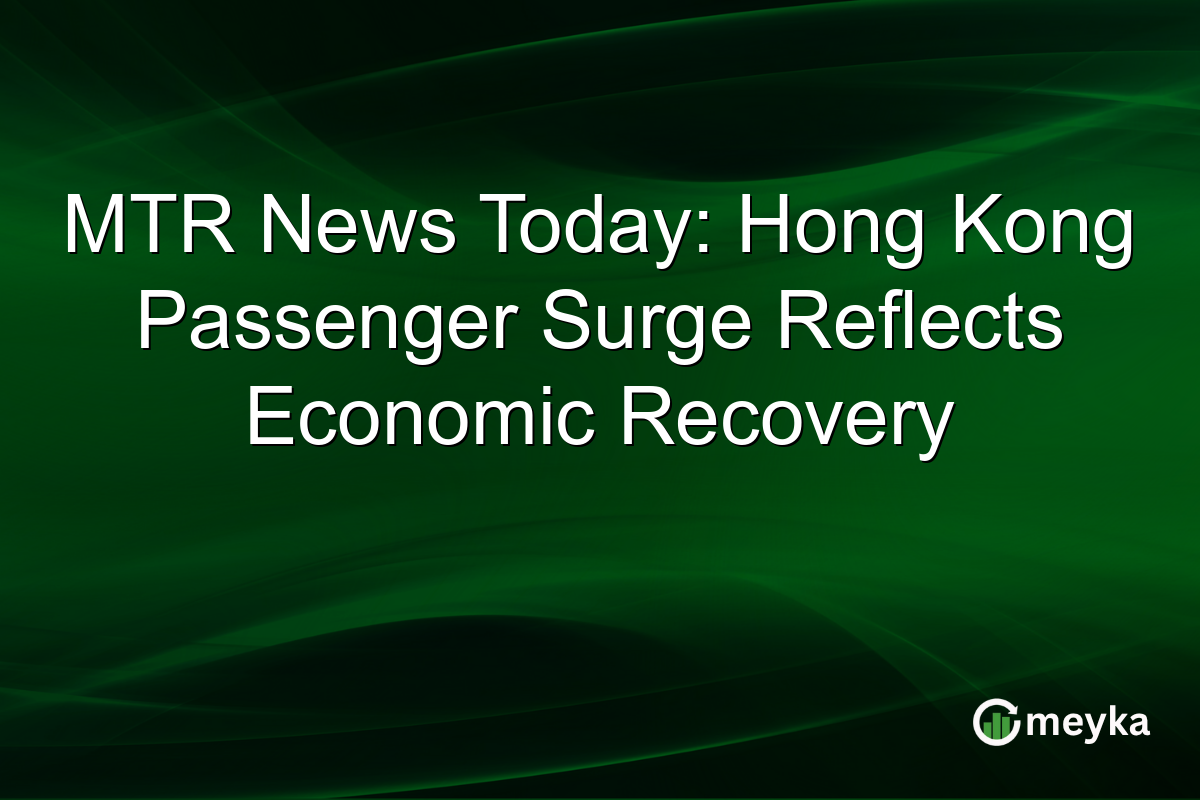MTR News Today: Hong Kong Passenger Surge Reflects Economic Recovery
In a promising sign of economic recovery, Hong Kong has experienced a significant surge in MTR passengers. This rise in public transportation usage highlights greater mobility and economic activity. Observers link this increase to Hong Kong’s revitalized economy, offering insights into public infrastructure utilization and its broader implications.
Continue Reading on Meyka
This article is available in full on our main platform. Get access to complete analysis, stock insights, and more.
Read Full Article →





